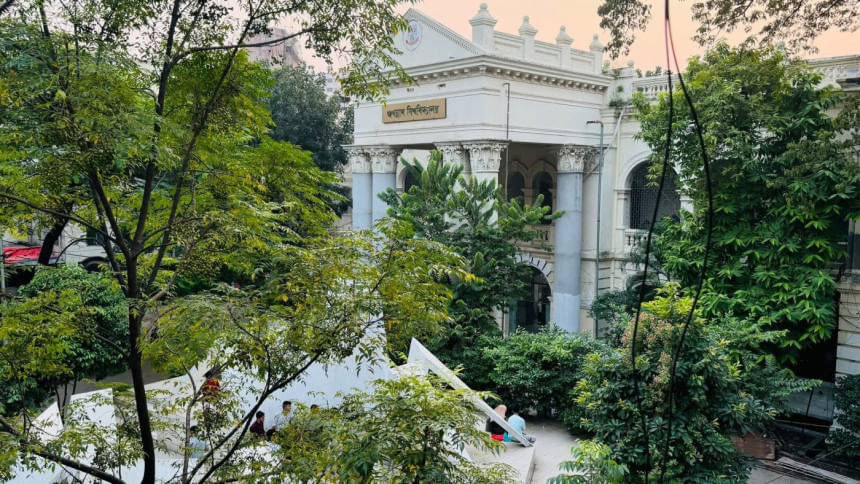Jagannath University AT 20: Steeped in history, strained by struggles

Jagannath University (JnU), one of Bangladesh's oldest and historic institutions of higher learning, marks 20 years as a full-fledged public university today.Renowned for its long legacy of education, culture, and activism, it has shaped generations of students and played a vital role in the country's political and intellectual life.Yet, despite its proud past, the university continues to struggle with inadequate facilities for its nearly 19,000 students. Chronic shortages of residential halls,...
Jagannath University (JnU), one of Bangladesh's oldest and historic institutions of higher learning, marks 20 years as a full-fledged public university today.
Renowned for its long legacy of education, culture, and activism, it has shaped generations of students and played a vital role in the country's political and intellectual life.
Yet, despite its proud past, the university continues to struggle with inadequate facilities for its nearly 19,000 students. Chronic shortages of residential halls, classrooms, transportation, medical services, and library resources have long hindered academic progress and campus life.
JnU has only one residential hall that can house about 1,200 students. The rest live in rented houses or shared messes, which has become an added financial burden for many from outside Dhaka.
Although two decades have passed since its establishment, no new permanent dormitories have been built. Most halls from the college era were occupied after independence, and efforts to reclaim them have yielded little progress.
Recently, the university gained legal possession of the Habibur Rahman and Bani Bhaban halls, where new residential facilities are being developed under the supervision of the Bangladesh Army. However, students complain that construction is moving too slowly.
The seven-acre campus accommodates 38 departments and two institutes across eight academic buildings, leading to a severe shortage of classrooms. Some departments with five running batches are allotted only two or three rooms, forcing them to share space or reschedule classes.
JnU also operates only 23 buses for its 19,000 students, two of which have been out of service for years. "We often have to hang from the door or ride on the roof to reach campus," said Mohon, a Sociology student.
The university's medical centre, run by two doctors, lacks essential equipment. "All you get here is a Napa tablet. There's no proper treatment or facility," said another student.
JnU's central library suffers from limited resources, while the lone cafeteria struggles to meet student demand, with complaints of long queues, poor food, and high prices.
"Jagannath University may have a glorious past, but even after two decades of becoming a full-fledged university, it still suffers from housing, infrastructural, and administrative limitations," said Fahmida Trishna, a student of Mass Communication and Journalism.
Amid these crises, the construction of a new campus in Teghoria, Keraniganj, offers hope. Spread over nearly 200 acres, it is expected to ease accommodation, transport, and infrastructure shortages once completed.
Construction began in 2018 but has been delayed by contractor negligence and bureaucratic hurdles. Following student protests earlier this year, the education ministry handed over supervision of the project to the Bangladesh Army.
According to the administration, the first phase of the new campus is expected to be completed by December 2026.
The history of Jagannath University dates back to 1858, when Dhaka Brahma School was founded and later renamed Jagannath School in 1872. It became a college in 1884 and was upgraded to a university in 2005.
Jagannath College also played a key role in major political movements, including the Language Movement and the Liberation War.
Vice-Chancellor Prof Rezaul Karim said, "With everyone's cooperation, we will continue to overcome all challenges and move forward in the days to come."